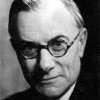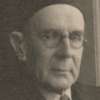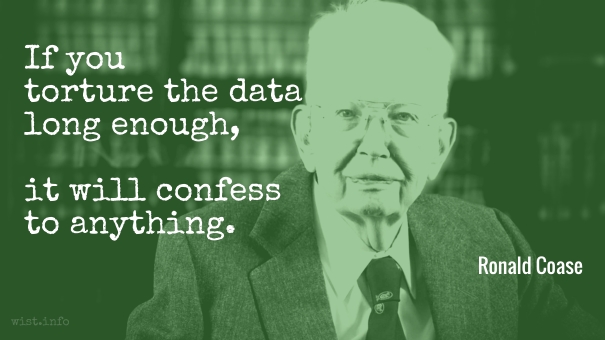Study the historian before you begin to study the facts. This is, after all, not very abstruse. It is what is already done by the intelligent undergraduate who, when recommended to read a work by that great scholar Jones of St. Jude’s, goes round to a friend at St. Jude’s to ask what sort of chap Jones is, and what bees he has in his bonnet. When you read a work of history, always listen out for the buzzing. If you can detect none, either you are tone deaf or your historian is a dull dog. The facts are really not at all like fish on the fishmonger’s slab. They are like fish swimming about in a vast and sometimes inaccessible ocean; and what the historian catches will depend partly on chance, but mainly on what part of the ocean he chooses to fish in and what tackle he chooses to use – these two factors being, of course, determined by the kind of fish he wants to catch. By and large, the historian will get the kind of facts he wants. History means interpretation.
E. H. Carr (1892-1982) British historian, journalist, international relations theorist [Edward Hallett "Ted" Carr]
What Is History?, ch. 1 (1961)
(Source)
Quotations about:
selectivity
Note not all quotations have been tagged, so Search may find additional quotes on this topic.
History may be used to support any conclusion, according to the emphasis of our conscious or unconscious principle of selection.
G. Lowes Dickinson (1862-1932) British political scientist and philosopher [Goldsworthy "Goldie" Lowes Dickinson]
Religion: A Criticism and a Forecast, ch. 1 “Ecclesiasticism” (1906)
(Source)
Not everyone is worth listening to.
Alain de Botton (b. 1969) Swiss-British author
The Consolations of Philosophy, ch. 1 “Consolation For Unpopularity” (2000)
(Source)
“There are two types of people in this world,” Pete volunteers helpfully, “those who think there are only two types of people in the world, and everybody else.” He sips his wine thoughtfully. “But the first kind don’t put it that way. They usually think in terms of the saved and the damned, with themselves sitting pretty in the lifeboat.”
Most collectors of verses and sayings proceed as though they were eating cherries and oysters, choosing the best first, and ending by eating them all.
[La plupart des faiseurs de recueils de vers ou de bons mots ressemblent à ceux qui mangent des cerises ou des huitres, choisissant d’abord les meilleurs, et finissant par tout manger.]
Nicolas Chamfort (1741-1794) French writer, epigrammist (b. Nicolas-Sébastien Roch)
Products of Perfected Civilization [Produits de la Civilisation Perfectionée], Part 1 “Maxims and Thoughts [Maximes et Pensées],” ch. 1, ¶ 2 (1795) [tr. Merwin (1969)]
(Source)
(Source (French)). Alternate translations:
Most of those who make collections of verse or epigram are like men eating cherries or oysters: they choose out the best at first, and end by eating all.
[tr. Mathers (1926)]
The majority of compilers of verse and sayings are like eaters of cherries and oysters, who pick out the best first and end by eating all.
[tr. Pearson (1973)]
Most authors of collections of poetry or epigrams proceed as though they were eating cherries or oysters. They start out by selecting the best, but wind up swallowing everything.
[tr. Dusinberre (1992)]
Most compilers of anthologies of poetry or of epigrams are like people eating cherries or oysters: they start by picking out the best and easting the lot.
[tr. Parmée (2003), ¶ 3]
Most compilers of verse or of bon mots resemble people who eat cherries or oysters, at first choosing the best ones, and finishing by eating everything.
[tr. Sinicalchi]
Live always in the best company when you read.
Sydney Smith (1771-1845) English clergyman, essayist, wit
Memoir of the Reverend Sydney Smith, by His Daughter, Lady Holland, Vol. 1, ch. 10 (1855)
(Source)








